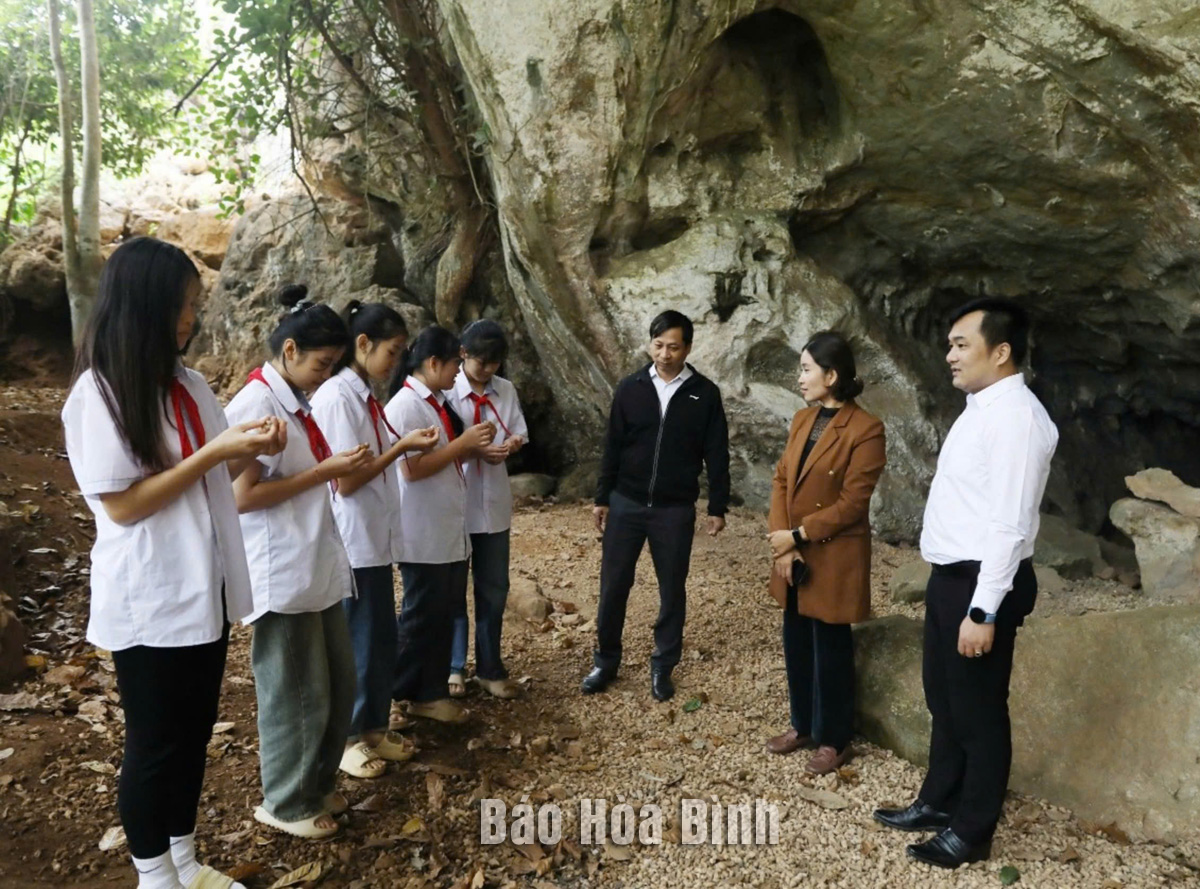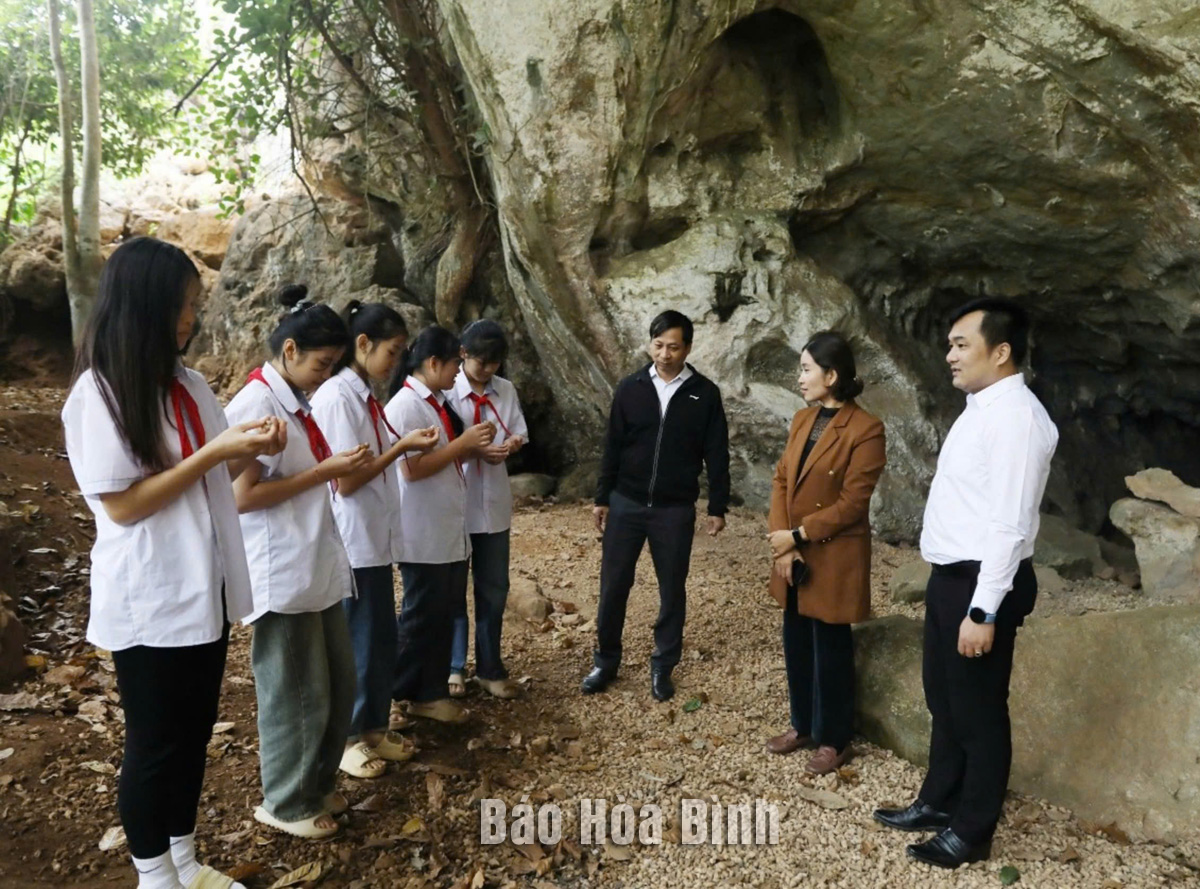



The provincial museum has recently organized a program to promote the value of the special national relic Stone Roof of Vanh village in Yen Phu commune for nearly 200 students and teachers of Yen Phu primary and secondary school, located next to the relic site.
The museum's Director To Anh Tu said the program is expected to help improve students’ basic knowledge about the relic site, thus joining hands to protect, preserve, and promote traditional cultural values.
Each student should play a role in preserving and promoting cultural heritage values to friends and the community, he said, stressing that preserving cultural heritage left by ancestors is not only a responsibility but also a pride of every citizen as cultural heritage is a bridge between the past and the present and a provision for the future.
With its special values, the Stone Roof of Vanh village was recognized as a national archaeological site by the Ministry of Culture and Information (now the Ministry of Culture, Sports and Tourism) in 2003. It was listed as a special national relic site by the Prime Minister in Decision No. 694/QD-TTg, dated July 18, 2024).
In recent years, special attention has been paid to the promotion and introduction of the "Hoa Binh Civilisation". Since the term "Hoa Binh Civilisation” was officially recognized in 1932, there have been numerous promotional activities both at home and abroad. National and international conferences on the "Hoa Binh Civilisation” have been held, along with seminars and the publication of survey and excavation results.
Since the re-establishment of Hoa Binh province in 1991, the museum has regularly organized exhibitions to introduce the "Hoa Binh Civilisation". Mobile exhibitions have been held not only in Hoa Binh but also in other localities such as Hanoi, Thai Nguyen, and Hung Yen.
In 2017, the locality successfully organized a symposium to commemorate the 85th anniversary of the world’s recognition of the "Hoa Binh Civilisation" term with the participation of domestic and international scholars, as well as cultural heritage managers from the central agencies. It left a significant impact on the domestic and international academic community and heritage managers.
In 2022, the provincial People's Committee organized a scientific seminar to evaluate the breakthrough progress in the research of the "Hoa Binh Civilisation". It honored female archaeologist M. Colani, who made significant contributions to the discovery, research, and international recognition of the "Hoa Binh Civilisation" term by the international prehistoric academic community in 1932, contributing to affirming the importance of the archaeological sites representing the "Hoa Binh Civilisation".
Notably, by implementing the project on preserving and promoting the cultural values of the Muong ethnic group and the "Hoa Binh Civilisation” in the 2023 – 2030 period, the province has allocated resources and carried out many specific and practical activities to preserve and promote the "Hoa Binh Civilisation”.